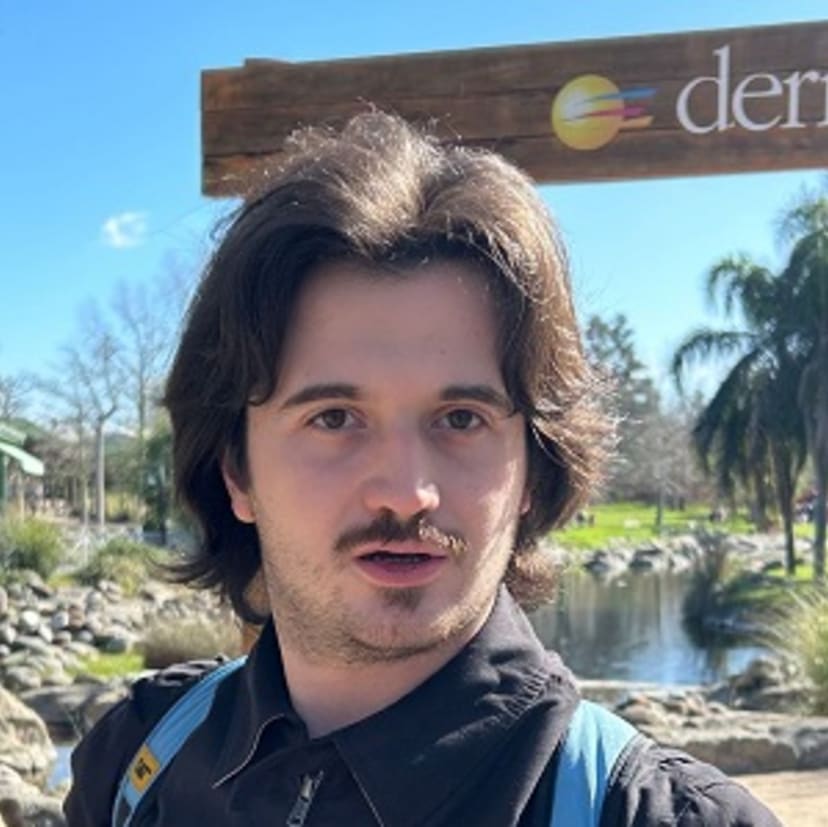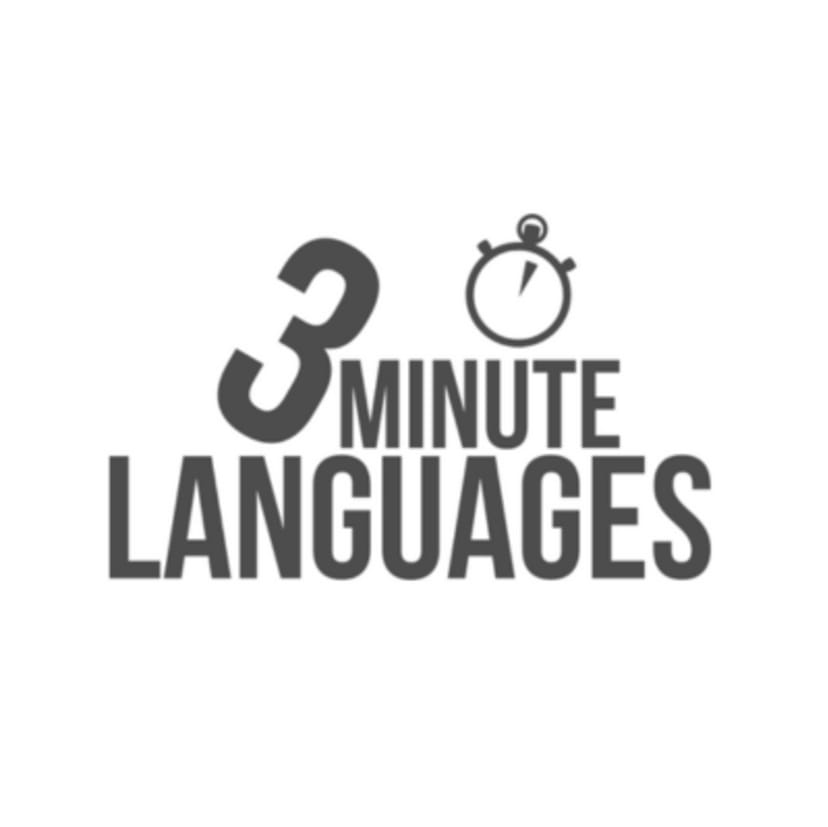
Interview with Spanish tutors
Spanish Tutors Share How to Kickstart Your Learning Journey
We asked Spanish tutors about beginners course, essential skills, learning topics, time commitment, common challenges, dialect focus, culture, resources, success stories, successful traits, practicing, post course, top advice, misconceptions
1
How does your course aid true beginners?

Jennifer CorralizzaSpanish tutor • 1 month ago • Contact
I use the zoom platform to be able to teach my classes.Also, first of all, my classes are focused on these factors:
1. Grammar: is grammar vital to better understand Spanish and the general reasons why? It is written or structured in a certain general way.
2. Reading and listening comprehension: It is necessary to be able to speak a language to understand what a person says in Spanish, for that reason I try as much as possible to only speak Spanish and if you need a translation you tell me and/or write to me, but as far as possible possible only to speak in Spanish. I also use personal motivation videos, stories, interviews, and songs to practice listening and before watching them we see a list of key or main words.
3. Conversational part, with respect to grammar we will do exercises but there will also be a space during the lesson only conversational, so that you speak, lose your fear and feel more comfortable when speaking Spanish and I would help you say the words correctly so that you feel more confident and also in that case, I would correct you so that you say it correctly and in the next time you know how to say it.
4. Expand vocabulary: We would carry out activities to expand vocabulary, learn new words that help you feel more confident and secure in the process, so that you know different words and it can be easier for you to structure sentences.
1. Grammar: is grammar vital to better understand Spanish and the general reasons why? It is written or structured in a certain general way.
2. Reading and listening comprehension: It is necessary to be able to speak a language to understand what a person says in Spanish, for that reason I try as much as possible to only speak Spanish and if you need a translation you tell me and/or write to me, but as far as possible possible only to speak in Spanish. I also use personal motivation videos, stories, interviews, and songs to practice listening and before watching them we see a list of key or main words.
3. Conversational part, with respect to grammar we will do exercises but there will also be a space during the lesson only conversational, so that you speak, lose your fear and feel more comfortable when speaking Spanish and I would help you say the words correctly so that you feel more confident and also in that case, I would correct you so that you say it correctly and in the next time you know how to say it.
4. Expand vocabulary: We would carry out activities to expand vocabulary, learn new words that help you feel more confident and secure in the process, so that you know different words and it can be easier for you to structure sentences.
2
What essential skills does your course require?

Jennifer CorralizzaSpanish tutor • 1 month ago • Contact
None, if you don't know how to speak Spanish or don't know any Spanish, there is no problem, I would explain and teach the topics from the beginning, from the main things such as the ABCs in Spanish, greetings, introductions, the structure of the verb to be and its differences in Spanish, among others, carrying out activities and repeating these activities until it is clear.
So if you have no knowledge of Spanish, there is no problem, we would carry out grammar, vocabulary, and pronunciation activities so that you feel more confident with Spanish and continue to advance better and better in it.
So if you have no knowledge of Spanish, there is no problem, we would carry out grammar, vocabulary, and pronunciation activities so that you feel more confident with Spanish and continue to advance better and better in it.
3
What will students learn in your course?

Jennifer CorralizzaSpanish tutor • 1 month ago • Contact
We will start from the basics such as introduction, greetings, pronunciation and we will see grammar, especially the main one so that you know how to properly structure in the different tenses and feel more confident when speaking Spanish, this will help and facilitate the process significantly, as well as We will also carry out activities to expand and learn new words and we will do reading and listening comprehension exercises so that you will have a clearer overview of the words, structure and pronunciation.
4
What is the weekly required time commitment?

Jennifer CorralizzaSpanish tutor • 1 month ago • Contact
Each person's process is different, but I would say that it would be excellent at least 4 days a week since the more we practice, the more we listen in Spanish, and the more we see the learned vocabulary and new vocabulary, our brain will get used to it and our brain You will learn faster. Therefore I recommend several days but if the person can see less day and continue studying that is also very good!
5
What are common challenges for beginners?

Jennifer CorralizzaSpanish tutor • 1 month ago • Contact
In my opinion, the most difficult thing is usually the pronunciation, for that reason I always try to correct the pronunciation so that the person feels safer and calmer when speaking, in addition to the fact that one of the most difficult parts is the vocabulary, so That always during my classes I would try to have a space for you to practice and learn new words as well as structure sentences correctly with practice. I also see that it is usually difficult to speak because the person feels nervous, so during classes we would always try to have a space to be able to speak and carry out conversations to practice fluency.
6
Do you focus on a specific dialect?

Jennifer CorralizzaSpanish tutor • 1 month ago • Contact
It is a generalized approach. I am from Colombia-Cali, I have a neutral and fairly clear accent, so my approach is going to be general, through the everyday grammar of Spanish, with videos, songs and general everyday vocabulary, so that it is a practical and continuous learning with everyday vocabulary.
7
How do you weave in culture?

Jennifer CorralizzaSpanish tutor • 1 month ago • Contact
Culture is very important, I teach in a general way about my culture, its food, customs and traditions. If the person wants to see and know more about my country we can dedicate some time to see and talk about that topic in question.But it is good for them to know and learn about the culture so that their learning is more internalized and they understand the language and the country more as such.
8
What resources do you suggest for beginners?

Jennifer CorralizzaSpanish tutor • 1 month ago • Contact
I highly recommend watching movies in Spanish since it is the best way in my opinion to learn since you are seeing a scenario and you are also seeing the vocabulary that is being used, besides it is also very good to improve pronunciation and then be able to speak and pronounce when reading the words better, in addition to helping to learn vocabulary faster because you see the word and if you later see it again or review it, it is easier for you not to forget it. I also recommend listening to podcasts, during a space of the day as well as reading books and short stories and underlining, as well as writing the new words and then trying to use the learned words in a conversation.
9
Any notable success stories from students?

Jennifer CorralizzaSpanish tutor • 1 month ago • Contact
A student managed to improve his fluency when speaking and then we began to do listening and reading comprehension exercises to continue working and continue improving and expanding vocabulary. I am always very attentive that they learn more vocabulary and expressions to continue improving their fluency when speaking. and express their ideas, which is why I try to use teaching materials when we advance in the lessons so that once they have the bases you can continue improving in the conversational, listening, and reading comprehension part.
10
What are the key traits of successful students?

Jennifer CorralizzaSpanish tutor • 1 month ago • Contact
Successful students in my course often exhibit several key traits that differentiate them from those who might face challenges.
1. Commitment and Consistency: Successful students consistently allocate time to engage with the course materials, practice activities, and exercises. They understand that language acquisition requires ongoing effort and commit to a regular learning routine.
2. Openness to Communication: Effective language learning involves communication, and successful students are willing to engage in speaking and writing practice. They overcome the fear of making mistakes and understand that errors are a natural part of the learning process.
3. Patience and Persistence:Language acquisition is a gradual process. Successful students recognize that progress may not always be immediate, and they demonstrate patience and persistence to overcome obstacles.
By embracing these traits, students can excel in my course and maximize their language learning experience, ultimately achieving their desired level of proficiency and cultural understanding.
1. Commitment and Consistency: Successful students consistently allocate time to engage with the course materials, practice activities, and exercises. They understand that language acquisition requires ongoing effort and commit to a regular learning routine.
2. Openness to Communication: Effective language learning involves communication, and successful students are willing to engage in speaking and writing practice. They overcome the fear of making mistakes and understand that errors are a natural part of the learning process.
3. Patience and Persistence:Language acquisition is a gradual process. Successful students recognize that progress may not always be immediate, and they demonstrate patience and persistence to overcome obstacles.
By embracing these traits, students can excel in my course and maximize their language learning experience, ultimately achieving their desired level of proficiency and cultural understanding.
11
Do you have tips for practicing outside the class?

Jennifer CorralizzaSpanish tutor • 1 month ago • Contact
I recommend that they continue practicing Spanish through movies, series, podcasts, songs, since with these methods they will be able to continue learning in a didactic and interactive way, and if they can, practice with people who are also learning a new language just like them, so that they support, correct and learn from each other.
12
What’s next after completing your course?

Jennifer CorralizzaSpanish tutor • 1 month ago • Contact
If you have the opportunity to continue learning Spanish in a Latin American country, other options are to continue learning from all possible media, videos, songs, music, readings, among others so that you continue practicing, learning and seeing new vocabulary in the process.
13
What’s your top advice for beginners?

Jennifer CorralizzaSpanish tutor • 1 month ago • Contact
My best advice is not to stress, learn, have fun, make mistakes, try to see the process in a friendly and calm way, where you can get to know yourself, meet other people in the process, have better opportunities and try to work hard. in order to achieve the expected results since many times learning a language requires time, dedication and a lot of attention to continue practicing, learning and, above all, speaking, since speaking, in my opinion, is one of the most important keys to successfully learning a language, regardless of If mistakes are made, since it is normal, it is a process and you are learning from the good and you also learn from mistakes.
14
Any misconceptions about learning Spanish?

Jennifer CorralizzaSpanish tutor • 1 month ago • Contact
Learning Spanish is not difficult, perhaps the conjugations are considered complicated but with practice when you learn and understand the grammar correctly it is usually very easy, also many times people do not want to repeat a topic or a word, but repetition is an aspect key to being able to learn something, anything, if you remember something in Spanish, it is possibly because you have heard it many times and you continue to hear it, which is why it is one of the keys in my opinion, to repeat, practice and learn from mistakes to continue learning and improving.

